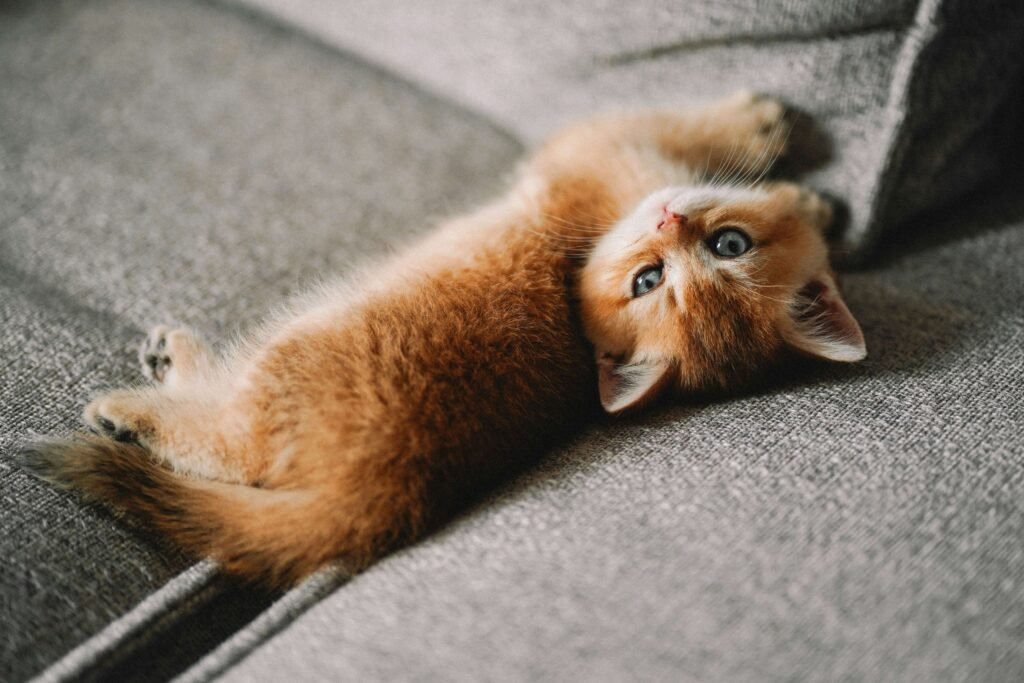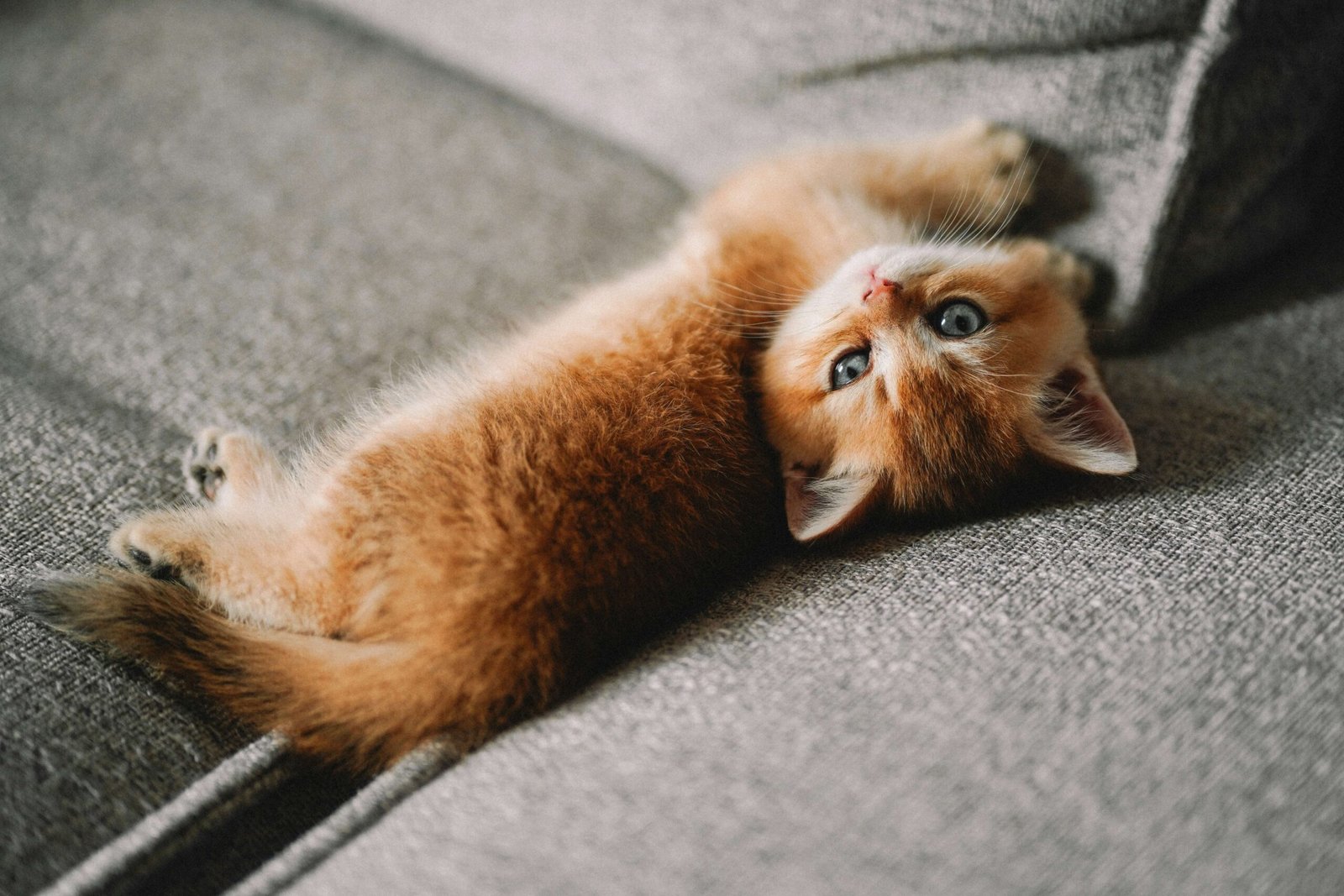Why Does My Cat Get Eye Boogers Every Day?
If you’ve ever noticed your feline friend waking up with crusty eyes or tiny eye boogers, you’re not alone. Many cat owners wonder why their beloved pets seem to produce these little “gifts” daily. While it might seem like a minor issue, understanding the reasons behind this phenomenon is essential for ensuring your cat’s overall health and well-being. In this blog post, we’ll explore the causes of eye discharge in cats, how to differentiate between normal and abnormal situations, and what steps you can take to keep your furry companion happy and healthy.
Common Causes of Daily Eye Discharge in Cats
Cats are known for their cleanliness, so it’s natural to be curious about why they might have persistent eye boogers. Here are some common reasons that could explain this occurrence:
Natural Tear Production:
Just like humans, cats produce tears to keep their eyes lubricated. Sometimes, excess tears dry up and form small crusts around the eyes.Environmental Irritants:
Dust, pollen, or even strong scents from cleaning products can irritate your cat’s eyes, leading to increased tear production and subsequent discharge.Breed-Specific Traits:
Certain breeds, such as Persians or Himalayans, are more prone to eye discharge due to their facial structure and shorter nasal passages.Dry Eye Syndrome:
Also known as keratoconjunctivitis sicca, this condition occurs when a cat doesn’t produce enough tears, resulting in sticky or crusty eye discharge.Allergies:
Cats can develop allergies to food, plants, or environmental factors, which often manifest as watery or goopy eyes.
Understanding these common causes can help you identify whether your cat’s eye boogers are harmless or a sign of something more serious. Always monitor your pet closely and consult a vet if you notice any unusual symptoms.
When Is Eye Discharge a Cause for Concern?
While occasional eye boogers are usually harmless, there are instances where they may indicate an underlying health issue. Below are signs that warrant further investigation:
Yellow or Green Discharge:
A change in the color of the discharge could signal an infection, such as conjunctivitis or a respiratory illness.Swollen or Red Eyes:
Inflammation around the eyes is often a sign of irritation, injury, or infection that requires veterinary attention.Excessive Squinting or Blinking:
If your cat seems unable to open its eyes fully, it could be experiencing pain or discomfort caused by an underlying condition.Behavioral Changes:
Lethargy, loss of appetite, or increased aggression can accompany eye problems and may indicate a more systemic issue.Frequent Rubbing or Pawing at Eyes:
This behavior suggests your cat is trying to relieve discomfort, which could stem from an injury or foreign object in the eye.
If you observe any of these signs, it’s crucial to seek professional advice promptly. Early intervention can prevent complications and ensure your cat remains in good health.
Check this guide 👉Why Do Cats Chase Their Tails? Best 7 Behavior Tips!
Check this guide 👉Why Does My Cat Twitch in Their Sleep? Best 7 Behavior Tips!
Check this guide 👉Why Does My Dog Keep Stretching His Back Legs? Best 7 Tips!

Signs of Healthy Eyes | Signs of Potential Problems |
|---|---|
Clear, bright eyes | Cloudy or dull appearance |
Minimal tear production | Excessive tearing |
No visible swelling | Swollen eyelids |
Comfortable blinking | Frequent squinting |
Clean fur around eyes | Crusty or matted fur near eyes |
How to Prevent and Manage Eye Boogers in Cats
Taking proactive measures can reduce the likelihood of excessive eye discharge in your cat. Here are some practical tips:
Regular Cleaning:
Gently wipe your cat’s eyes with a damp, soft cloth to remove dried discharge and prevent buildup.Maintain a Clean Environment:
Keep your home free of dust and allergens to minimize irritation to your cat’s eyes.Proper Nutrition:
Ensure your cat receives a balanced diet rich in vitamins and minerals to support overall eye health.Routine Vet Check-Ups:
Schedule regular veterinary visits to catch potential issues before they escalate into major problems.Monitor for Changes:
Stay vigilant about any changes in your cat’s behavior or physical appearance, especially around the eyes.
By incorporating these habits into your routine, you can help keep your cat’s eyes clean and healthy while reducing the frequency of eye boogers.
Home Remedies for Managing Mild Eye Discharge
For minor cases of eye discharge, there are several safe home remedies you can try. However, always consult your vet before attempting any treatment.
Saline Solution:
Use a sterile saline solution to gently rinse your cat’s eyes and remove debris.Warm Compress:
Apply a warm, damp cloth to your cat’s eyes to loosen crusts and soothe irritation.Trim Facial Hair:
For long-haired breeds, trimming the hair around the eyes can prevent it from irritating the area.Humidifier Use:
Adding moisture to the air with a humidifier can alleviate dryness and reduce tear production.Avoid Harsh Chemicals:
Keep cleaning products and other chemicals away from your cat’s living space to prevent eye irritation.
These remedies are effective for mild cases but should never replace professional care if symptoms persist or worsen.
Signs That Your Cat’s Eye Boogers Are Normal
Not all eye discharge in cats is a cause for concern. Here are some indicators that your cat’s eye boogers are likely harmless:
Small Amount of Discharge:
A tiny bit of dried crust around the eyes after sleep is normal and similar to “sleep” in humans.Clear or Light-Colored Discharge:
If the discharge is clear or slightly white, it’s usually not a sign of infection or illness.No Behavioral Changes:
If your cat is eating, playing, and behaving normally, the eye boogers are likely not affecting their well-being.Occurs Only in the Morning:
It’s common for cats to have minor discharge after resting, as tears accumulate overnight.No Redness or Swelling:
Healthy eyes should appear bright and free of inflammation or puffiness around the lids.
If these signs align with your observations, your cat’s eye boogers are probably nothing to worry about. However, staying vigilant ensures you can catch any changes early.
Simple Ways to Keep Your Cat’s Eyes Clean
Regular cleaning is one of the best ways to prevent excessive eye discharge. Here are some easy steps you can take:
Use a Soft Cloth or Cotton Ball:
Gently wipe away any dried discharge with a soft, damp cloth or cotton ball to avoid irritation.Opt for Sterile Saline Solution:
Use a vet-approved saline solution to clean your cat’s eyes without introducing harmful bacteria.Clean in One Direction:
Wipe from the inner corner of the eye outward to prevent spreading debris back into the eye.Avoid Using Human Products:
Never use human eye drops or cleaners, as they may contain ingredients that irritate your cat’s eyes.Be Gentle and Patient:
Approach the process calmly to avoid startling your cat and making them resistant to future cleanings.
By incorporating these practices into your routine, you can help keep your cat’s eyes clean and reduce the buildup of eye boogers over time.
When to Seek Immediate Veterinary Care
While many cases of eye discharge are harmless, some situations require urgent attention. Here are scenarios where you should contact your vet right away:
Persistent Discharge:
If the eye boogers don’t go away or worsen over a few days, it could indicate an underlying issue.Visible Foreign Objects:
If you notice something stuck in your cat’s eye, such as a piece of dirt or a strand of hair, seek professional help.Sudden Vision Changes:
If your cat seems disoriented, bumps into objects, or appears unable to see properly, this is a red flag.Bleeding or Open Wounds:
Any signs of blood or injury around the eyes demand immediate veterinary care.Unusual Odor:
A foul smell accompanying eye discharge may suggest an infection or abscess that needs treatment.
These symptoms often point to serious conditions that require prompt intervention. Trust your instincts—if something seems off, it’s always better to err on the side of caution and consult your vet.
FAQ
Is it normal for cats to have eye boogers every day?
Some eye discharge is normal, but excessive or discolored discharge may indicate a problem.
Can I clean my cat’s eyes myself?
Yes, using a damp cloth or sterile saline solution is safe, but avoid harsh chemicals or invasive methods.
What should I do if my cat’s eyes are red and swollen?
Contact your veterinarian immediately, as this could be a sign of infection or injury.
Are certain cat breeds more prone to eye discharge?
Yes, flat-faced breeds like Persians are more likely to experience eye-related issues due to their anatomy.
How can I tell if my cat has an eye infection?
Look for symptoms such as yellow/green discharge, redness, swelling, or frequent pawing at the eyes.
Final Thoughts: Keeping Your Cat’s Eyes Healthy
In conclusion, daily eye boogers in cats are often a normal part of their grooming routine, but they can also point to underlying issues that require attention. By staying informed and observant, you can ensure your cat’s eyes remain bright, clear, and free of discomfort. Remember, prevention is key—regular cleaning, a clean environment, and routine vet check-ups go a long way in maintaining your cat’s overall health. If you ever feel uncertain about your cat’s eye health, don’t hesitate to reach out to your veterinarian for guidance. After all, a healthy cat is a happy cat!
Do Cats Have Taste Buds? Best 7 Expert Tips! – Discover how cats experience flavors and why their taste is so unique.
Do Dogs Have Taste Buds? Best 7 Expert Tips! – Discover how dogs experience taste, their preferences, and what it means for their diet and health.
Can Cats Taste Sweet? Best 7 Expert Tips! – Discover why cats can’t taste sweetness, how it affects their diet, and tips to keep them healthy and happy.
Can Dogs Taste Sweet? Best 7 Expert Tips! – Discover how dogs perceive sweetness, which foods are safe, and tips to manage their sweet cravings responsibly.





